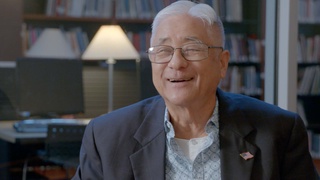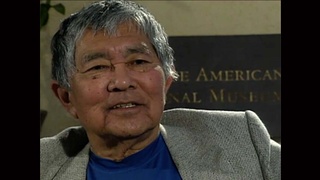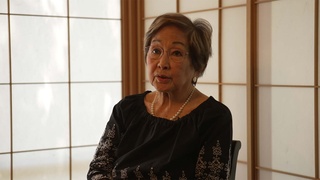Interviews
Death of sister in October 1942
I*: When your sister died, which was I think in October of 1942, were you in Amache [concentration camp AKA Granada concentration camp] by that point or were you still in Santa Anita [assembly center]?
Amache.
I: Now when your family went to Santa Anita, your sister did not join you because she was in sanitarium.
That's right.
I: And she had tuberculosis.
Yeah.
I: Do you think that the internment of your family had any effect on your sister's health?
Definitely. We could have taken care of her privately. She was moved to a facility where I think they didn't care.
I: When you learned about your sister's death, was that something that was expected? Did the family expect her to die when she did?
No.
I: What type of effect did it [her death] have on your family, on your parents?
Well, we were in Granada [concentration camp]. And so my father was stoic and my mother, my mother, mother, fell apart.
*"I" indicates an interviewer (Daniel H. Inouye).
Date: March 2, 2006
Location: New York, United States
Interviewer: Daniel H. Inouye
Contributed by: Asian/ Pacific/ American Studies Program and Institute, Department of Social and Cultural Analysis, New York University.










